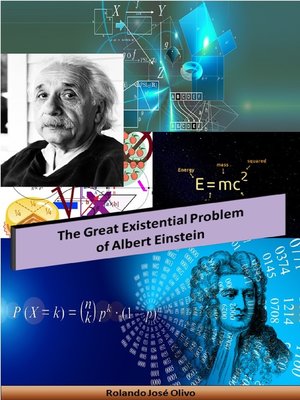
Sign up to save your library
With an OverDrive account, you can save your favorite libraries for at-a-glance information about availability. Find out more about OverDrive accounts.
Find this title in Libby, the library reading app by OverDrive.



Search for a digital library with this title
Title found at these libraries:
| Library Name | Distance |
|---|---|
| Loading... |
On the one hand, Albert Einstein, the author of the General Theory of Relativity, is recognized as the best scientist of humankind, setting a before and after in physics: Newton's and Einstein's. And on the other hand, there are still reasonable doubts about his religious orientation, which leads to ask these questions: What were Einstein's religious beliefs? What was Einstein's great existential problem?
Broadly speaking, Einstein assumed a diffuse religious position (between atheism, agnosticism and Judaism), which was due to his doubts about the existence of God.
It should be noted that despite his conflicting and rebellious nature, he was cautious and moderate, avoiding as much as possible to expose his religious position. However, Einstein did not give much importance to religion, denied the Judeo-Christian God and accepted the pantheist, conceived by Spinoza. In this regard, he lived suffering a great existential problem, without obtaining definitive answers.







